- About
-
Advocacy
- Submit Legislative Proposals to the ILA Public Policy Committee
- Advocacy Policies and Procedures
- More Than a Building
- Census 2020 Resources
- Creating or Changing Illinois State Library Law
- Illinois Minimum Wage Resources
- Intro to Property Taxes for IL Libraries
- ILA Public Policy Principles
- Legislative Issues
- Libraries and Immigration Enforcement
- Making Your Case
- Ready, Set, Advocate
- TIFs and Public Library Districts in Illinois
- Top Ten Advocacy Tips
- Unite Against Book Bans in Illinois
-
Committees
- Frequently Asked Questions (FAQ) about ILA Committees
- Advocacy Committee
- Awards Committee
- Conference Program Committee, 2025
- Conference Program Committee, 2026
- Diversity Committee
- Finance Committee
- Fundraising Committee
- ILA Reporter Advisory Committee
- Illinois Libraries Present Committee
- Illinois Public Library Standards Committee
- Intellectual Freedom Committee
- iREAD Committee
- Nominating Committee
- Public Policy Committee
- Reaching Forward North Committee
- Reaching Forward South Committee
- Events
-
Forums
- Frequently Asked Questions (FAQ) about ILA Forums
- Human Resources & Administration Forum (HRAF)
- Illinois Association of College & Research Libraries Forum (IACRL)
- Library Trustee Forum (LTF)
- Marketing Forum (MF)
- Resources & Technical Services Forum (RTSF)
- Retired Members Forum
- Small and Rural Libraries Forum (SARL)
- Students and New Professionals Forum (SANP)
- Young Adult Services Forum (YASF)
- Youth Services Forum (YSF)
- Initiatives
- Membership
- Publications
This bibliography represents books challenged, restricted, removed, or banned in 2008 and 2009 as reported in the Newsletter on Intellectual Freedom from May 2008-May 2009. (A date prior to May 2008 indicates the controversy began earlier, but continues into 2009.)
Alexie, Sherman
The Absolutely True Diary of a Part-Time Indian
Thorndike Pr.; Little
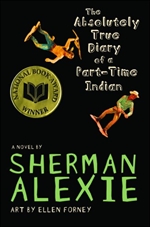
Suspended from a Crook County High School classroom in Prineville, Oreg. (2008) after a parent complained it was offensive. The New York Times best seller and a National Book Award winner will remain out of the classroom until the school district can revamp its policies. The book is about a boy growing up on the Spokane Indian Reservation who decides to attend an all-white school. The protagonist in Alexie’s book discusses masturbation.
Source: Newsletter on Intellectual Freedom, Mar. 2009, p. 41.
Anaya, Rudolfo A.
Bless Me, Ultima
TQS Pubns
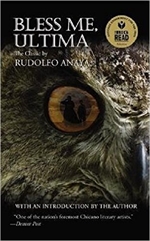
Banned from the Orestimba High School's English classes in Newman, Calif. (2008) by the superintendent after complaints that the book is profane and anti-Catholic. Teachers claimed that the superintendent circumvented the district’s policies on book challenges and set a dangerous precedent. The book is about a boy maturing, asking questions about evil, justice, and the nature of God.
Source: Newsletter on Intellectual Freedom, Jan. 2009, p. 7; Mar. 2009, pp. 39-40.
Go Ask Alice
Avon; Prentice-Hall
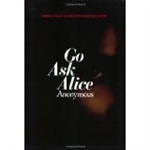
Challenged as a reading assignment at Hanahan Middle School in Berkeley County, S.C. (2008) because of blatant, explicit language using street terms for sex, talk of worms eating body parts, and blasphemy. The anonymously written 1971 book is about a fifteen-year-old girl who gets caught up in a life of drugs and sex before dying from an overdose. Its explicit references to drugs and sex have been controversial since it was first published.
Source: Newsletter on Intellectual Freedom, May 2008, pp. 98-99.
Avi
The Fighting Ground
Harper; Lippincott
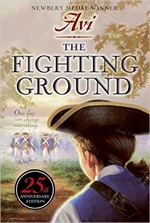
Banned from the Bay District school's library shelves in Panama City, Fla. (2008) after a parent noted several profanities uttered by some soldiers. The award-winning book, intended for the fourth-grade reading level, is about a twenty-four-hour period in the life of a thirteen-year-old boy during the Revolutionary War.
Source: Newsletter on Intellectual Freedom, July 2008, p. 140.
Bailey, Jacqui, and Jan McCafferty
Sex, Puberty, and All That Stuff: A Guide to Growing Up
Barron’s

Retained in the Windsor, Conn. Library (2008) after being challenged as inappropriate for its descriptions of sexual development. The book is designed for students from grades five through ten.
Source: Newsletter on Intellectual Freedom, Nov. 2008, pp. 253-54.
Barron, T. A.
The Great Tree of Avalon: Child of the Dark Prophecy
Philomel Bks

Restored by the Lackawanna, N.Y. School Board (2008) along with several other books following accusations of censorship by some parents and teachers. The books were pulled from the middle school library recommended list because of concerns that the books deal with the occult.
Source: Newsletter on Intellectual Freedom, May 2008, pp. 115-16.
Berendt, John
Midnight in the Garden of Good and Evil: A Savannah Story
Modern Library

Banned for just four days from the Beulah, N.Dak. High School library (2008). Two school employees followed school policy to request removing the book after their son brought it home from an accelerated-reading program, in which students pick from a couple of hundred titles. The parents said the 1994 runaway nonfiction best seller was too pornographic and at odds with student behavior promoted in the school handbook. The board reversed its decision at the encouragement of the board president, who said the board moved too fast and unleashed a possible court case it would never win. He said there might be more palatable alternatives, like creating a list of restricted books that parents have to approve before their children can check them out. A decision to review school policies and investigate less-restrictive means to control library books was approved by the school board.
Source: Newsletter on Intellectual Freedom, Mar. 2009, pp. 55-56.
Bowden, Mark
Black Hawk Down: A Story of Modern War
Atlantic Monthly Pr.

Removed from a classroom at Central Lafourche High School in Raceland, La. (2008) for violating the district policy on cursing. The book is the story of a failed Special Forces mission in Somalia.
Source: Newsletter on Intellectual Freedom, Jan. 2009, pp. 9-10.
Brannen, Sarah
Uncle Bobby's Wedding
Putnam

Challenged at the Douglas County Libraries in Castle Rock, Colo. (2008) because “some material may be inappropriate for young children.” The children’s book features two gay guinea pigs. A resident requested that the book be removed from the library and placed in a special area or labeled “some material may be inappropriate for young children.”
Source: Newsletter on Intellectual Freedom, Sept. 2008, pp. 183-84.
Chbosky, Stephen
The Perks of Being a Wallflower
Pocket Bks.

Removed from Portage, Ind. High School classrooms (2008) for topics such as homosexuality, drug use, and sexual behavior. The novel chronicles the freshman year of high school of a young man struggling with awkwardness and the changing world around him. Challenged at the West Bend, Wis. Community Memorial Library (2009) as being “obscene or child pornography” from a section designated “Young Adults.”
Source: Newsletter on Intellectual Freedom, Jan. 2009, pp. 8-9; May 2009, pp. 80-81.
Colfer, Eoin
The Supernaturalist
Hyperion

Restored by the Lackawanna, N.Y. School Board (2008) along with several other books following accusations of censorship by some parents and teachers. The books were pulled from the middle school library recommended list because of concerns that the books deal with the occult.
Source: Newsletter on Intellectual Freedom, May 2008, pp. 115-16.
Collier, James Lincoln, and Christopher Collier
My Brother Sam Is Dead
Scholastic

Retained in all Muscogee County, Ga. elementary school libraries (2009), despite a parent’s concerns about profanity in the book.
Source: Newsletter on Intellectual Freedom, May 2009, p. 93.
Comfort, Alex
The Joy of Sex
Crown; Simon & Schuster

Restricted minors’ access in the Topeka and Shawnee County, Kans. Public Library (2009) because a group contended that the material is “harmful to minors under state law.”
Source: Newsletter on Intellectual Freedom, May 2009, pp. 77-78.
Comfort, Alex
The New Joy of Sex
Pocket Bks.

Challenged at the Nampa, Idaho Public Library (2005) along with seven other books because “they are very pornographic in nature and they have very explicit and detailed illustrations and photographs which we feel don't belong in a library.” The library board approved policy changes that restrict children's access to any holdings that may fall under the state's harmful to minors statute and barred the library from buying movies rated NC-17 or X.
Source: Newsletter on Intellectual Freedom, May 2008, pp. 96-97; July 2008, pp. 140-41; Nov. 2008, pp. 254-55.
Cox, Elizabeth
Night Talk
Graywolf Pr.

Challenged at the South Gwinnett, Ga. High School’s library (2008) because the story, which portrays the friendship of a white girl and a black girl during the Civil Rights era, contains “graphic sex scenes that read like a how-to guide.” A school committee, comprised of three teachers and four parents, denied the request to restrict the book’s use or have it removed from the media center.
Source: Newsletter on Intellectual Freedom, Mar. 2009, pp. 37-38.
Crutcher, Chris
Chinese Handcuffs
Greenwillows
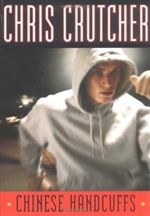
Retained in Delphi, Ind. Community High School’s curriculum (2009) despite claims of inappropriate sexual content and graphic language.
Source: Newsletter on Intellectual Freedom, May 2009, p. 94.
de Haan, Linda, and Stern Nijland
King & King
Tricycle Pr.

Parents of a Lexington, Mass. (2006) second-grader protested that their son’s teacher read the fairy tale about gay marriage to the class without warning parents first. The book was used as part of a lesson about different types of weddings. “By presenting this kind of issue at such a young age, they're trying to indoctrinate our children,” stated the parent. The incident renewed the efforts of Waltham-based Parents’ Rights Coalition to rid the state's schools of books and lessons that advance the “homosexual agenda” in public schools. U.S. District Court Judge Mark Wolf ruled February 23, 2007, that public schools are “entitled to teach anything that is reasonably related to the goals of preparing students to become engaged and productive citizens in our democracy.” Wolf said the courts had decided in other cases that parents’ rights to exercise their religious beliefs were not violated when their children were exposed to contrary ideas in school. The parents appealed to the U.S. Court of Appeals for the First Circuit, which dismissed the case on January 31, 2008. The courts said, “There is no evidence of systemic indoctrination. There is no allegation that the student was asked to affirm gay marriage. Requiring a student to read a particular book is generally not coercive of free exercise rights. Public schools are not obligated to shield individual students from ideas which potentially are religiously offensive, particularly when the school imposes no requirement that the student agree with or affirm those ideas, or even participate in discussions about them.” The parents plan to appeal to the U.S. Supreme Court claiming the curriculum violated their right to religious freedom. Withdrawn from two Bristol, England, U.K., primary schools (2008) following objections from parents who claimed the book was unsuitable for children and that they had not been consulted on their opinions.
Source: Newsletter on Intellectual Freedom, July 2006, pp. 186-87; May 2007, pp. 105-6; July 2008, pp. 146, 166; Sept. 2008, pp. 194-95.
Drill, Esther
Deal With It!: A Whole New Approach to Your Body, Brain, and Life as a gURL
Pocket Bks.

Challenged at the West Bend, Wis. Community Memorial Library (2009) as being “pornographic and worse than an R-rated movie.”
Source: Newsletter on Intellectual Freedom, May 2009, pp. 80-81.
Dubberley, Emily
Sex for Busy People: The Art of the Quickie for Lovers on the Go
Simon & Schuster

Restricted minors’ access in the Topeka and Shawnee County, Kans. Public Library (2009) because a group contended that the material is “harmful to minors under state law.”
Source: Newsletter on Intellectual Freedom, May 2009, pp. 77-78.
Follett, Ken
Pillars of the Earth
Morrow; NAL

Removed from a Cleburne, Tex. summer reading list (2009) for a dual credit, high school English class because the novel contains a rape scene and passages of explicit sex.
Source: Newsletter on Intellectual Freedom, May 2009, p. 107.
Gardner, John C.
Grendel
Knopf

Retained in the Sherwood, Oreg., School District sophomore honors English reading list (2008) after concerns were expressed about some of the novel’s scenes describing torture and mutilation.
Source: Newsletter on Intellectual Freedom, Jan. 2009, p. 23.
Green, John
Looking for Alaska
Dutton

Challenged, but retained for the eleventh-grade Regents English classes in Depew, N.Y. (2008) despite concerns about graphic language and sexual content. The school sent parents a letter requesting permission to use the Michael L. Printz Award for Excellence in Young Adult Literature novel and only three students were denied permission to read the book.
Source: Newsletter on Intellectual Freedom, May 2008, p. 117.
Grove, Vicki
The Starplace
Putnam

Challenged at the Turner Elementary School in New Tampa, Fla. (2008) because the novel contains a racial epithet. The book about an interracial middle-school friendship in 1960s Oklahoma was highly recommended by Children's Literature Review.
Source: Newsletter on Intellectual Freedom, May 2008, p. 96.
Harding, Kat
The Lesbian Kama Sutra
Thomas Dunne Bks.

Restricted minors’ access in the Topeka and Shawnee County, Kans. Public Library (2009) because a group contended that the material is “harmful to minors under state law.”
Source: Newsletter on Intellectual Freedom, May 2009, pp. 77-78 .
Harris, Robie H.
It's Perfectly Normal: A Book about Changing Bodies, Growing Up, Sex, and Sexual Health
Candlewick Pr.
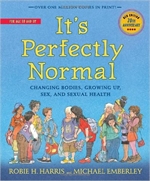
Retained in the Lewiston, Maine Public Library (2008) after a patron refused to return the book due to her objections to its content. Other patrons donated four copies of the book, which remains in circulation at the library.
Source: Newsletter on Intellectual Freedom, Nov. 2008, p. 255.
Hartinger, Brent
The Geography Club
Harper

Challenged at the West Bend, Wis. Community Memorial Library (2009) as being “obscene or child pornography” from a section designated “Young Adults.”
Source: Newsletter on Intellectual Freedom, May 2009, pp. 80-81.
Heinlein, Robert A.
The Day After Tomorrow
Signet

Removed from the Beardstown, Ill. High School library (2008). A parent requested its removal and a committee determined the novel “rather very adult in nature” and, because the library already had a large selection of other valuable science fiction and spy literature, the committee elected to remove the book from the high school’s circulation and donated it to the public library.
Source: Newsletter on Intellectual Freedom, Nov. 2008, pp. 229-30.
Holmes, Melisa, and Trish Hutchison
Hang-ups, Hook-ups, and Holding Out: Stuff You Need to Know about Your Body, Sex, and Dating
Health Communications

Retained in the Galway, N.Y. Public Library (2008) after complaints about the book’s “factual errors, philosophy, and perceived bias.” A review of the book by the library determined that the book received excellent reviews and contained no factual errors.
Source: Newsletter on Intellectual Freedom, Jan. 2009, p. 22.
Hosseini, Khaled
The Kite Runner
Bloomsbury
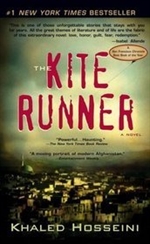
Challenged as appropriate study in tenth-grade honors English class at Freedom High School in Morganton, N.C. (2008) because the novel depicts a sodomy rape in graphic detail and uses vulgar language. Retained in the Jackson County School District, Marianna, Fla. (2008) after being removed from the required reading list for one class. The school board voted to retain the book in the library by a vote of five to two. Removed from the reading list at Centennial High School in Champaign, Ill. (2008) due to objections from a parent whose child was assigned the book for summer reading. Challenged in Burke County schools in Morgantown, N.C. (2008) by parents concerned about the violence and sexual situations portrayed in the book.
Source: Newsletter on Intellectual Freedom, May 2008, pp. 97-98; Nov. 2008, pp. 256-57; Jan. 2009, pp. 8, 10.
Huxley, Aldous
Brave New World
Harper.
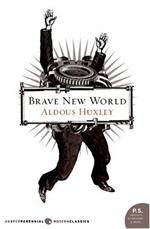
Retained in the Coeur D’Alene, Idaho School District (2008) despite objections that the book has too many references to sex and drug use.
Source: Newsletter on Intellectual Freedom, Jan. 2009, pp. 7-8.
Jackson, Jon A.
Dead Folks
Atlantic Monthly Pr.

Challenged in the Big Sky High School in Missoula, Mont. (2009) because the local author’s work was viewed as too graphic in its discussion of sex.
Source: Newsletter on Intellectual Freedom, May 2009, p. 84.
Jahn-Clough, Lisa
Me, Penelope
Houghton

Challenged in the middle school library in Tavares, Fla. (2008). The book is part of a collection that requires permission from the school librarian to check out. Objections centered on the book’s depiction of a sixteen-year-old who is dealing with the death of her brother and reference to sexual experimentation.
Source: Newsletter on Intellectual Freedom, Jan. 2009, pp. 5-6.
Kaysen, Susanna
Girl, Interrupted
Vintage

The New Rochelle, N.Y. Board of Education (2008) announced that it would replace all fifty copies of Susanna Kaysen’s memoir after school officials tore pages from the book deemed “inappropriate” due to sexual content and strong language. Removed was a scene where the rebellious Lisa encourages Susanna to circumvent hospital rules against sexual intercourse by engaging in oral sex instead. The incident was a hot topic across the blogosphere, transcending political ideology. It was featured on the left-leaning Boing Boing, the most widely read blog in the world, as well as the top conservative site, Hot Air, which is owned by Michelle Malkin of Fox News. The New Yorker magazine and The Atlantic Monthly also picked up the story, as well as dozens of blog sites focused on literary and free speech issues.
Source: Newsletter on Intellectual Freedom, Mar. 2009, pp. 56-57.
Lee, Harper
To Kill a Mockingbird.
Lippincott/Harper; Popular Library

Retained in the English curriculum by the Cherry Hill, N.J. Board of Education (2007). A resident had objected to the novel’s depiction of how blacks are treated by members of a racist white community in an Alabama town during the Depression. The resident feared the book would upset black children reading it.
Source: Newsletter on Intellectual Freedom, Mar. 2008, p. 80; May 2008, pp. 117-18.
Lockhart, E.
The Boy Book: A Study of Habits and Behaviors, Plus Techniques for Taming Them
Delacorte Pr.

Challenged in the Keller, Tex. Independent School District (2009) because some say it is “too adult for young eyes.”
Source: Newsletter on Intellectual Freedom, May 2009, pp. 79-80.
Maguire, Gregory
Wicked: The Life and Times of the Wicked Witch of the West
Regan Bks.

Retained in the tenth-grade honors program of the Canandaigua Academy in Ontario County, N.Y. (2008) despite concerns about the sexual content on a few pages of the book. The district will offer alternative reading for anyone who objects to the book.
Source: Newsletter on Intellectual Freedom, Jan. 2009, p. 23.
Mason, Bobbie Ann
In Country
Harper

Retained in Delphi, Ind. Community High School’s curriculum (2009) despite claims of inappropriate sexual content and graphic language.
Source: Newsletter on Intellectual Freedom, May 2009, p. 94.
Meyer, Stephenie H.
Twilight Series
Little
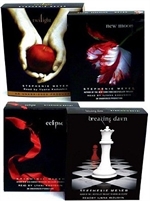
Removed from and later reinstated in the middle school libraries of the Capistrano, Calif. Unified School District (2008). The books were initially ordered removed by the district’s instructional materials specialist, who ordered that the books be moved from middle school to high school collections. That order was rescinded and the books remain in the middle school libraries. Challenged at the Brockbank Junior High in Magna, Utah (2009) by a parent over the sexual content in the Mormon author’s fourth novel, Breaking Dawn.
Source: Newsletter on Intellectual Freedom, Nov. 2008, p. 253; Jan. 2009, p. 5; May 2009, p. 80.
Morrison, Toni
The Bluest Eye
NAL

Retained in Delphi, Ind. Community High School’s curriculum (2009) despite claims of inappropriate sexual content and graphic language.
Source: Newsletter on Intellectual Freedom, May 2009, p. 94.
Myers, Walter Dean
Fallen Angels
Scholastic

Challenged on the accelerated reading list at Chinquapin Elementary School in Duplin County, N.C. (2008) because the book is littered with hundreds of expletives, including racial epithets and slang terms for homosexuals.
Source: Newsletter on Intellectual Freedom, May 2008, p. 97.
Myers, Walter Dean
Hoops
Dell.

Challenged in the Council Bluffs, Iowa schools (2009) because it contains “derogatory remarks, racial slurs, and sexual content.”
Source: Newsletter on Intellectual Freedom, May 2009, p. 77, p. 94.
Myracle, Lauren
ttfn
Amulet Bks.

Removed from the Marietta, Okla. Middle School library (2008) due to descriptions of sex and drug use. The book, which is recommended for older students, depicts online conversations between three eleventh-grade girls.
Source: Newsletter on Intellectual Freedom, Nov. 2008, p. 232.
Myracle, Lauren
ttyl
Amulet Bks.

Challenged in the Round Rock, Texas Independent School District middle school library (2008) due to the book’s descriptions of sex, porn, alcohol, and inappropriate teacher-student relationships. The school offers parents the ability to tell the school if they do not want their children to check out particular books at the library.
Source: Newsletter on Intellectual Freedom, Nov. 2008, pp. 232-33; Jan. 2009, pp. 6-7.
Naylor, Phyllis Reynolds
Alice on Her Way
Atheneum

Restricted to students who have parental consent at the Icicle River Middle School library in Leavenworth, Wash. (2008) due to its depiction of sexuality. One other book, Gary Paulsen’s Harris and Me, has been similarly restricted at the school for almost a decade. Parents challenged the book’s use during classroom reading because of “two cuss words.”
Source: Newsletter on Intellectual Freedom, May 2008, p. 97.
Nixon, Joan Lowery
Whispers from the Dead
Laurel-Leaf Bks.

Restored by the Lackawanna, N.Y. School Board (2008) along with several other books following accusations of censorship by some parents and teachers. The books were pulled from the middle school library recommended list because of concerns that the books deal with the occult.
Source: Newsletter on Intellectual Freedom, May 2008, p. 116.
Oh, Minya
Bling: Hip Hop's Crown Jewels
Wenner Bks.
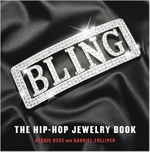
Retained with limited access at the Maplewood Middle School Library in Menasha, Wis. (2008). The book for reluctant readers contains photographs and interviews with rap artists and focuses on how hip-hop taste for flashy jewelry typifies their musical and cultural evolution of the last twenty-five years. In addition to retaining the book, board members voted unanimously to adopt procedures intended to secure and record parental consent before limited access books are released to students.
Source: Newsletter on Intellectual Freedom, July 2008, p. 164.
Picoult, Jodi
My Sister's Keeper
Atria Bks.

Pulled from classrooms in Clawson, Mich. (2008) as too racy for middle school students. The novel is the story of a young girl who sues her parents because they want her to donate a kidney to her sister.
Source: Newsletter on Intellectual Freedom, Mar. 2009, p. 40.
Picoult, Jodi
Nineteen Minutes
Atria Bks.

Restricted to high school students with parental permission at the Beardstown, Ill. High School library (2008) because the novel “describes sex, uses foul language, and contains other ‘R-rated’ content.”
Source: Newsletter on Intellectual Freedom, Nov. 2008, pp. 229-30.
Pullman, Philip
The Golden Compass
Knopf

Retained by the publicly funded Dufferin-Peel Catholic School District in Mississauga, Ontario, Canada (2008) with a sticker on the inside cover telling readers “representations of the church in this novel are purely fictional and are not reflective of the real Roman Catholic Church or the Gospel of Jesus Christ.”
Source: Newsletter on Intellectual Freedom, May 2008, p. 116.
Rennison, Louise
Angus, Thongs and Full-Frontal Snogging: Confessions of Georgia Nicolson
HarperCollins

Retained with limited access at the Maplewood Middle School Library in Menasha, Wis. (2008). The coming-of-age novel, which has sexual content, was found offensive by a parent. In addition to retaining the book, board members voted unanimously to adopt procedures intended to secure and record parental consent before limited access books are released to students.
Source: Newsletter on Intellectual Freedom, July 2008, p. 164.
Richardson, Justin, and Peter Parnell
And Tango Makes Three
Simon
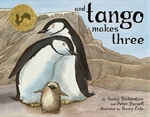
Returned to the general circulation shelves in the sixteen elementary school libraries in Loudoun County, Va. (2008) despite a complaint about its subject matter. Withdrawn from two Bristol, England, U.K., primary schools (2008) following objections from parents who claimed the book was unsuitable for children and that they had not been consulted on their opinions. Challenged, but retained at the Eli Pinney Elementary School in Dublin, Ohio (2008) despite a parent’s concerns that the book “is based on one of those subjects that is best left to be discovered by students at another time or in another place.” Challenged in the elementary school library in Ankeny, Iowa (2008) by parents who do not want their children to read the story of two male penguin parents in the Central Park Zoo due to concerns that it promotes homosexuality. On Dec. 15, 2008, the Ankeny school board members voted six to one to keep the book. Retained in the Chico, Calif. Unified School District (2008), over complaints that the book is inappropriate for elementary school students. The district review committee determined that the book meets library selection standards and district policy. Retained by the Calvert County Library in Prince Frederick, Md. (2008) after requests that the book be removed from the children’s section and shelved in a labeled alternative section. Retained in the Meadowview Elementary School in Farmington, Minn. (2009) despite a parent’s concern that “a topic such as sexual preference does not belong in a library where it can be obtained by young elementary students.”
Source: Newsletter on Intellectual Freedom, May 2008, pp. 116-17; July 2008, pp. 146, 164, 166; Jan. 2009, pp. 6, 21-22; Mar. 2009, p. 55; May 2009, p. 94.
Riley, Andy
The Book of Bunny Suicides: Little Fluffy Rabbits Who Just Don’t Want to Live Anymore
Plume

Retained at the Central Linn High School library in Halsey, Oreg. (2008). The 2003 book depicts cartoon rabbits killing themselves in various ways, from sitting in front of a bobsled run to impaling themselves on Darth Vader’s light saber. A parent complained about the book, saying initially she would burn it rather than return it. The story drew national attention and prompted readers to send the school district about twenty-four copies of the book.
Source: Newsletter on Intellectual Freedom, Jan. 2009, p. 22; Mar. 2009, p. 56.
Salinger, J. D.
The Catcher in the Rye
Bantam; Little

Challenged in the Big Sky High School in Missoula, Mont. (2009).
Source: Newsletter on Intellectual Freedom, May 2009, p. 84.
Schreier, Alta
Vamos a Cuba (A Visit to Cuba)
Heinemann

Removed from all Miami-Dade County, Fla. school libraries (2006) because of a parent's complaint that the book does not depict an accurate life in Cuba. The American Civil Liberties Union (ACLU) of Florida filed a lawsuit challenging the decision to remove this book and the twenty-three other titles in the same series from the district school libraries. In granting a preliminary injunction in July 2006 against the removal, Judge Alan S. Gold of U.S. District Court in Miami characterized the matter as a “First Amendment issue” and ruled in favor of the ACLU of Florida, which argued that the books were generally factual and that the board should add to its collection, rather than remove books it disagreed with. When the district court entered a preliminary injunction ordering the school district immediately to replace the entire series on library shelves, the Miami-Dade School Board appealed the decision to the Eleventh Circuit Court in Atlanta. In a February 5, 2009, two to one decision, the U.S. Court of Appeals for the Eleventh Circuit said the board did not breach the First Amendment, and ordered a Miami federal judge to lift a preliminary injunction that had allowed Vamos a Cuba to be checked out from school libraries. But the three-judge panel’s opinion—not unlike the School Board’s initial vote—was so fraught with political rhetoric such as “book banning” that further appeals seem inevitable.
Source: Newsletter on Intellectual Freedom, July 2006, p. 207; Sept. 2006, pp. 230-31; Nov. 2006, p. 288; Jan. 2007, p. 8; May 2007, pp. 91-92; Mar. 2009, pp. 43-45.
Sebold, Alice
The Lovely Bones
Little

Moved to the faculty section of the John W. McDevitt Middle School library in Waltham, Mass. (2008) because its content was too frightening for middle school students.
Source: Newsletter on Intellectual Freedom, May 2008, p. 97.
Seierstad, Åsne
The Bookseller of Kabul
Little; Virago

Removed from Roosevelt High School’s library and classrooms in Wyandotte, Mich. (2008) because it “is too sexually explicit.” The book is a nonfiction account of what life is like inside an Afghan household. The school said the book went through several reviews and was approved for high school students before being placed on the assigned reading list for the class.
Source: Newsletter on Intellectual Freedom, Mar. 2009, pp. 40-41.
Silverstein, Charles, and Felice Picano
The Joy of Gay Sex
Crown; Simon & Schuster/Fireside

Challenged at the Nampa, Idaho Public Library (2005) along with seven other books because “they are very pornographic in nature and they have very explicit and detailed illustrations and photographs which we feel don’t belong in a library.” The library board approved policy changes that restrict children's access to any holdings that may fall under the state's harmful to minors statute and barred the library from buying movies rated NC-17 or X. The book was relocated to the director’s office (2008) and it was eventually restored to the collection (2008). Challenged in the Lewis and Clark Library in Helena, Mont. (2008) due to objections over its content. The book has been in the library’s collection since 1993. The library director accepted the recommendation of the library’s collection review committee that the book be retained in the collection. Restricted minors’ access in the Topeka and Shawnee County, Kans. Public Library (2009) because a group contended that the material is “harmful to minors under state law.”
Source: Newsletter on Intellectual Freedom, July 2006, p. 183; May 2008, pp. 96-97; July 2008, pp. 140-41; Nov. 2008, pp. 231-32, 254-55; May 2009, pp. 77-78.
Sittenfeld, Curtis
Prep: A Novel
Random

Pulled from the accelerated reading program in the Heritage Oak Private School in Yorba Linda, Calif. (2008). A parent complained that the book was “pornographic.”
Source: Newsletter on Intellectual Freedom, May 2008, p. 95.
Stroud, Jonathan
The Amulet of Samarkand
Hyperion

Restored by the Lackawanna, N.Y. School Board (2008) following accusations of censorship by some parents and teachers. The book was pulled from the middle school library recommended list because of concerns that the book deals with the occult.
Source: Newsletter on Intellectual Freedom, May 2008, p. 116.
Stroud, Jonathan
The Golem's Eye
Hyperion

Restored by the Lackawanna, N.Y. School Board (2008) along with several other books following accusations of censorship by some parents and teachers. The book was pulled from the middle school library recommended list because of concerns that the book deals with the occult.
Source: Newsletter on Intellectual Freedom, May 2008, p. 116.
Stroud, Jonathan
Ptolemy's Gate
Hyperion

Restored by the Lackawanna, N.Y. School Board (2008) along with several other books following accusations of censorship by some parents and teachers. The book was pulled from the middle school library recommended list because of concerns that the book deals with the occult.
Source: Newsletter on Intellectual Freedom, May 2008, p. 116.
Tarbox, Katherine
A Girl's Life Online
Dutton

Challenged in the English 11 Regents class at Baker High School in Baldwinsville, N.Y. (2008) because of the book’s graphic language. The cautionary tale about Internet safety is one of the five books students could select for the contemporary literature class unit on “teenage struggles.”
Source: Newsletter on Intellectual Freedom, July 2008, p. 143.
Taylor, Mildred D.
The Land
Phyllis Fogelman Bks.

Removed from the Turner Elementary School media-center shelves in New Tampa, Fla. (2008) as age-inappropriate. A parent challenged the book because the novel contains a racial epithet. The book was a 2002 Coretta Scott King Author Award recipient.
Source: Newsletter on Intellectual Freedom, May 2008, p. 96.
Tucker, Todd
Notre Dame vs. the Klan: How the Fighting Irish Defeated the Ku Klux Klan
Loyola Pr.

Indiana University-Purdue University Indianapolis (IUPUI) administrators found (2008) that a student-employee was guilty of racial harassment merely for reading in a public area an historical account of Notre Dame students’ fight with members of the Ku Klux Klan. The student-employee contacted the American Civil Liberties Union of Indiana and six months later received a letter stating that IUPUI “regret[s] this situation took place,” is committed to upholding freedom of expression on its campus, and no documents regarding this incident exist in the employee's file.
Source: Newsletter on Intellectual Freedom, July 2008, pp. 159-60.
Twain, Mark [Samuel L. Clemens]
The Adventures of Huckleberry Finn
Bantam; Bobbs-Merrill; Grosset; Harper; Holt; Houghton; Longman; Macmillan; NAL; Norton; Penguin; Pocket Bks.

Retained in the Manchester, Conn. School District (2008) with the requirement that teachers attend seminars on how to deal with issues of race before teaching the book in their classrooms.
Source: Newsletter on Intellectual Freedom, Jan. 2009, pp. 22-23.
Walker, Alice
The Color Purple
Harcourt

Challenged in Burke County schools in Morgantown, N.C. (2008) by parents concerned about the homosexuality, rape, and incest portrayed in the book.
Source: Newsletter on Intellectual Freedom, Jan. 2009, p. 10.
Zinn, Howard
A People's History of the United States
Harper

Challenged in the North Stafford, Va. High School advanced-placement history class (2009), even though it's not the primary textbook because the book is “un-American, leftist propaganda.” Students in the advanced placement class also read an article titled, “Howard Zinn’s Disappointing History of the United States,” which criticizes Zinn’s book.
Source: Newsletter on Intellectual Freedom, May 2009, pp. 108-09.

 iREAD Summer Reading Programs
iREAD Summer Reading Programs Latest Library JobLine Listings
Latest Library JobLine Listings